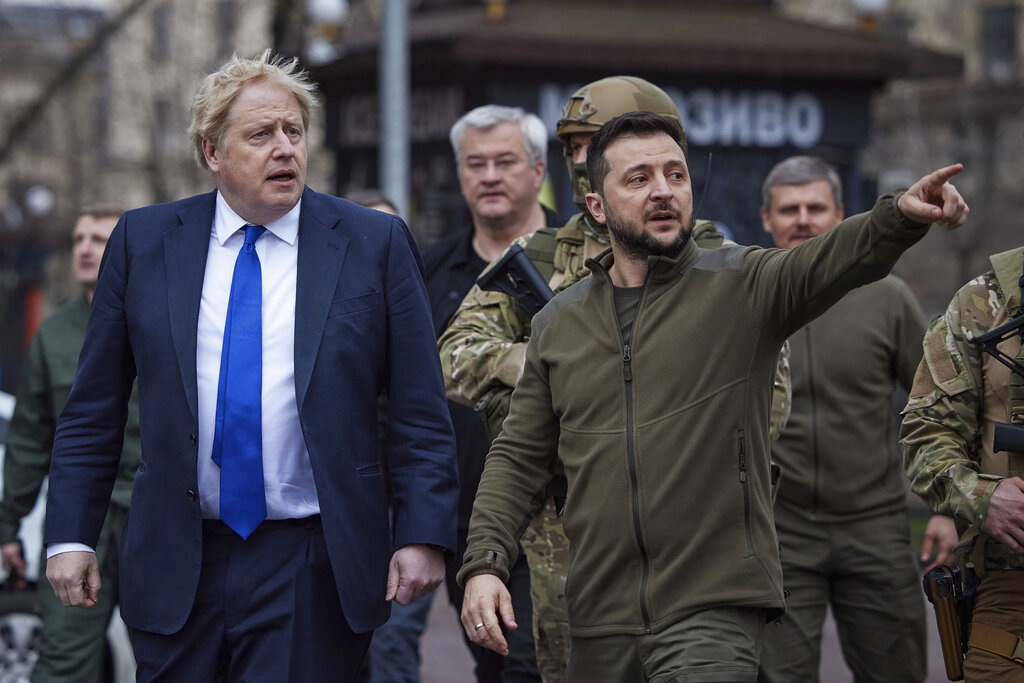In his farewell speech outside Downing Street, Boris Johnson did not forget to mention Ukraine. He assured Ukrainians that the U.K. will not give up the role of leading the fight against Russian imperialism, but that is far from certain.
Johnson has disappointed the British over Brexit, which was to bring prosperity but in reality is deepening its problems and could lead to the break up of Britain. When Queen Elizabeth II’s subjects had to accept the rigors of lockdown, Johnson held parties in Downing Street, and, in the case of the sex scandal involving the deputy chief whip Chris Pincher, the prime minister lied about what he knew.
However, with regard to Ukraine, Johnson was consistent and farsighted. He delivered significant weaponry and fought hard for the international community to impose tough sanctions against Russia. In contrast to Macron and Scholz, he did not attempt dialog with Putin.
If London were now to change its approach, this could have wider consequences, as in Washington there are those who want to see their stance on the war reviewed.
Much will depend on who succeeds Johnson at Downing Street. The current British Foreign Secretary Liz Truss was even more hawkish on Russia than Johnson, but other likely successors such as former Chancellor Rishi Sunak and his successor, Nadhim Zahawi, may want to prioritize the economy and be more willing for compromises with Moscow.
What is certain is that Britain will for a while turn in on itself. The new prime minister will need time to establish himself on the world stage and may not wish to play as large a role on it as Johnson. All this at a time that will be critical for Ukraine’s fate.
As a consequence, Poland may become more isolated in attempting to force a tough stance on Russia. Warsaw must reflect on the fact that as a result of the looming economic crisis, voters will become less tolerant of politicians who have failed to deliver promised prosperity and have instead presided over recession.
The domestic political crisis in the UK may therefore be indicative of how the economic crisis is beginning to influence electorates to mind their own business. This could be the beginning of a wave that will sweep away other governments in Europe, including the present ruling bloc in Warsaw.





